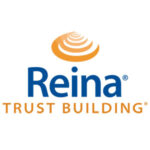Understand the Value of Trust in the Workplace
Today, more than ever, trust is increasingly recognized as an essential asset to break down silos, foster collaboration, deepen teamwork, drive engagement, and manage the never-ending process of change in organizations and on teams.
When trust is present, people step forward and do their best work, together, efficiently. They align around a common purpose, take risks, think outside of the box, have each other’s backs, and communicate openly and honestly. When trusting relationships are absent, people jockey for position, hoard information, play it safe, and talk about — rather than to — one another.
It’s no secret that trusting relationships are what people most want and need at work. But despite the importance, need, and demand for them, teams struggle to build and sustain them for the long term. In all teams, trust will be built and trust will be broken. It comes with the territory of human relationships. It’s especially vulnerable during periods of rapid growth or change, or when the team is virtual.
This paper outlines the 3 dimensions of trust in a model that gives teams a common language to talk about trust-related issues constructively, take thoughtful action on them, sustain trust over time, and enable them to take trust to the next level.
Download Research Report
Download this paper to better understand the value of trust in the workplace and help your team collaborate together more effectively.











